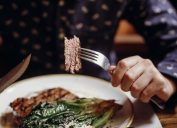Never Do This Before Washing Your Fruits and Vegetables, CDC Warns
This common kitchen mistake could be putting your health at risk, the authority says.
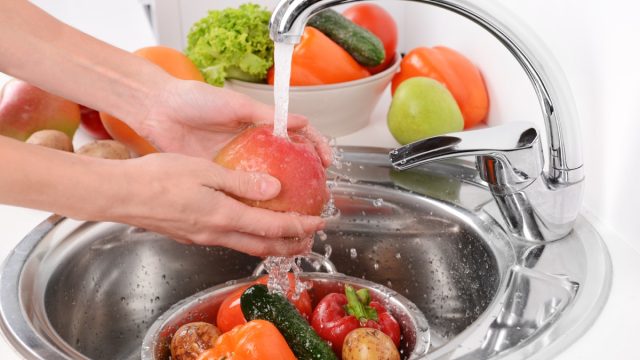
Fruits and vegetables are an essential part of a healthy diet, providing ample vitamins, minerals, and filling fiber without tons of calories, saturated fat, or sodium. Unfortunately, many people are making a major mistake with their fruits and veggies that could be putting them at risk for serious illness, according to the Centers for Disease Control and Prevention (CDC). Before you find yourself laid up in bed with a serious illness, read on to discover how to avoid this critical error.
RELATED: Never Wash These 4 Foods Before Cooking Them, CDC Warns.
Never peel your fruits and vegetables before washing them.
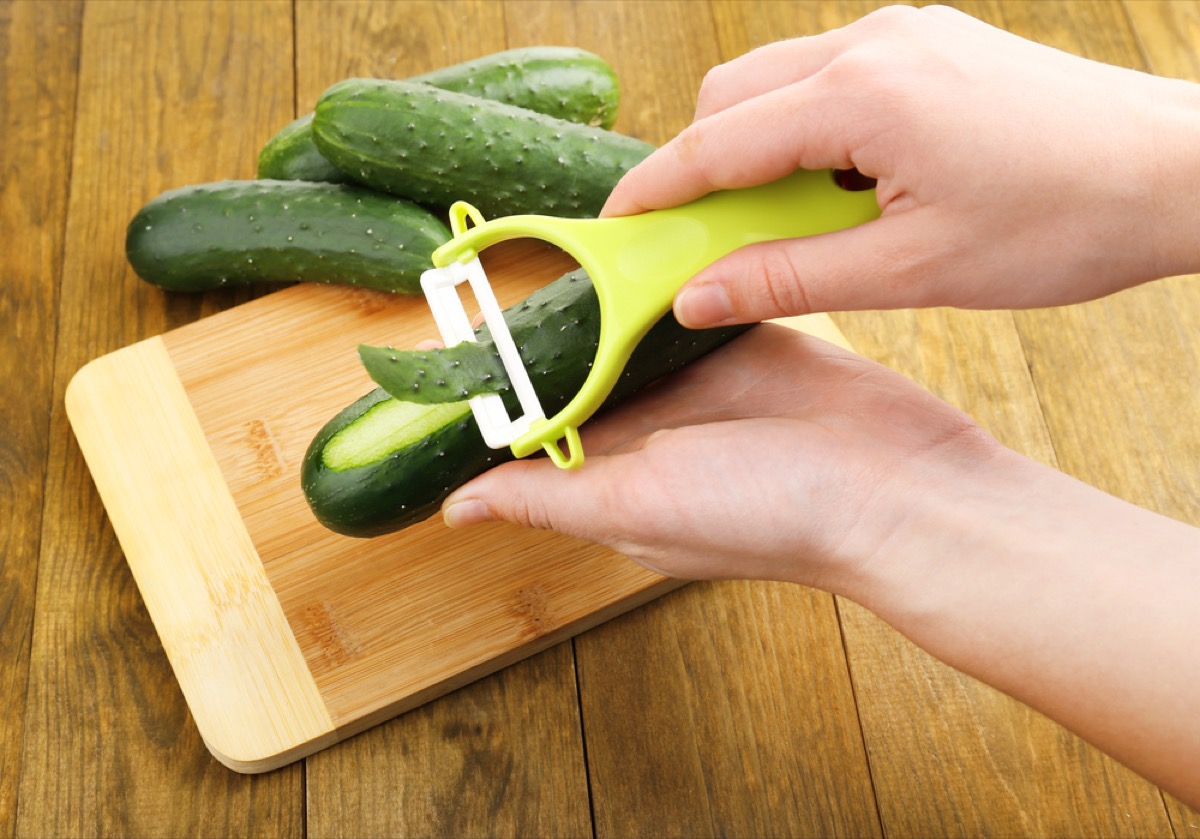
While you may be eager to enjoy those fruits and vegetables quickly, peeling them before you wash them is always a bad idea, the CDC says.
When you peel a vegetable or piece of fruit that hasn't been washed, you can transfer bacteria on the outside of that item directly onto the flesh you're about to consume.
For the latest food safety news delivered straight to your inbox, sign up for our daily newsletter!
Produce is among the food groups most likely to cause food poisoning.
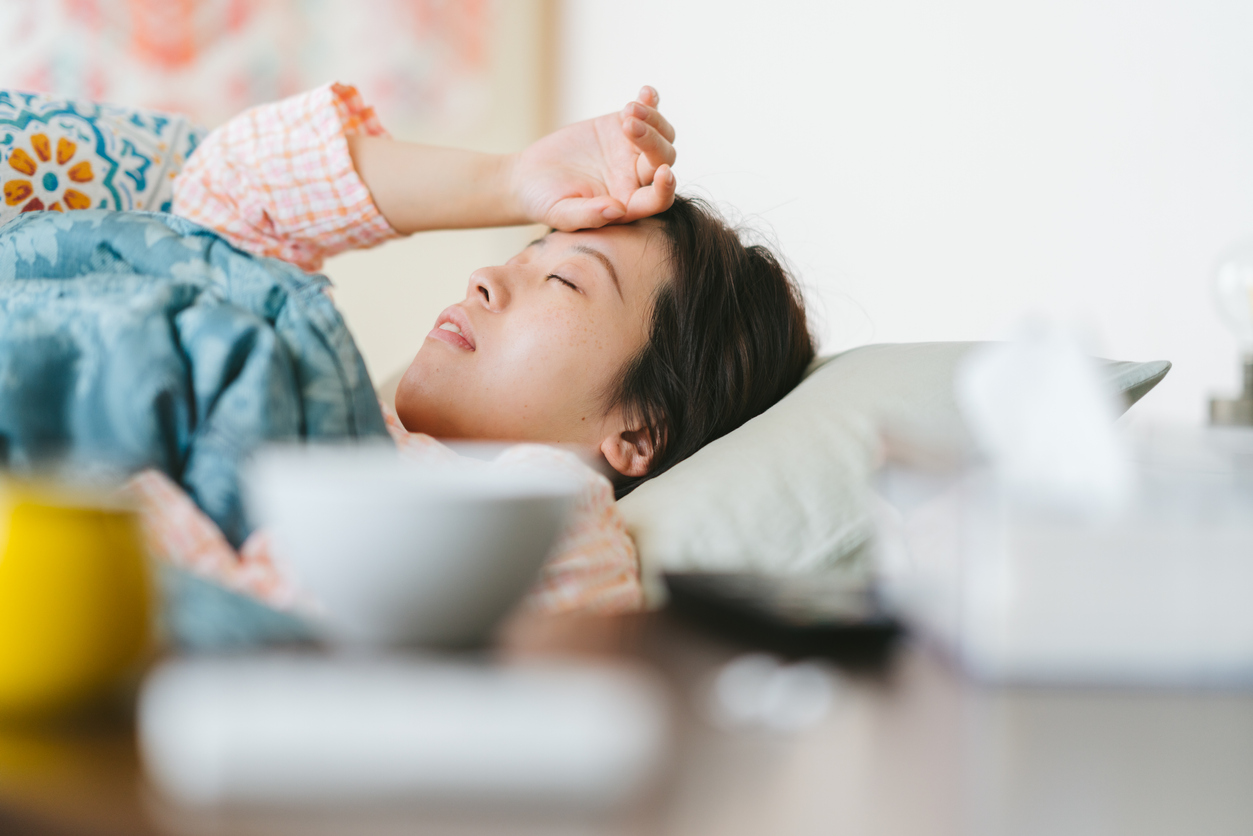
Despite their reputation for being healthy, fruits and vegetables can present serious health risks if not prepared properly. In fact, produce is among the top contributors to foodborne illnesses caused by Salmonella, E. coli, and Listeria each year.
If you happen to be peeling fruit prior to washing it, you may increase your risk of consuming food that's been contaminated with these bacteria, which can make you seriously ill—or worse. Approximately 420 people die from Salmonella, 100 people die from E. coli, and 260 people die from Listeria in the U.S. each year, the CDC reports.
Certain cleaning methods can do more harm than good.
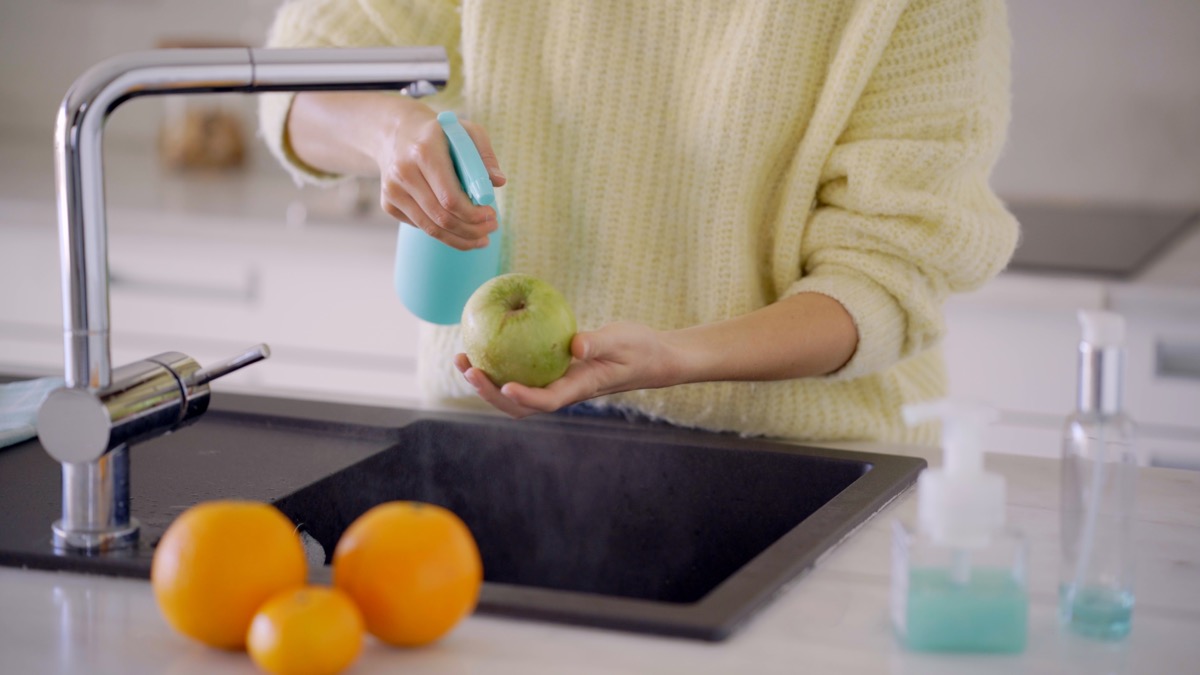
While the U.S. Food & Drug Administration (FDA) does recommend washing produce with running water and scrubbing firm fruits and vegetables with a clean brush prior to consuming them, there are certain methods of cleaning your produce that could be putting your health at risk.
"Produce is porous. Soap and household detergents can be absorbed by fruits and vegetables, despite thorough rinsing, and can make you sick. Also, the safety of the residues of commercial produce washes is not known and their effectiveness has not been tested," cautions the FDA.
Certain parts of clean produce should still be avoided.

Even if you've thoroughly cleaned a piece of produce, experts say there are parts of those fruits and vegetables you may still want to avoid eating.
Both the CDC and FDA recommend cutting out any parts of your fruits or vegetables that appear to be bruised or otherwise damaged. "Bruises and cuts may allow pathogens to enter a fruit or vegetable, and damaged produce typically spoils faster," Rebecca Dittmar, coordinator of the Food Protection Management Program at the Texas A&M University College of Agriculture & Life Sciences explained in an interview with AgriLife Today.
RELATED: If You Notice This on a Potato, Don't Eat It, Experts Warn.
